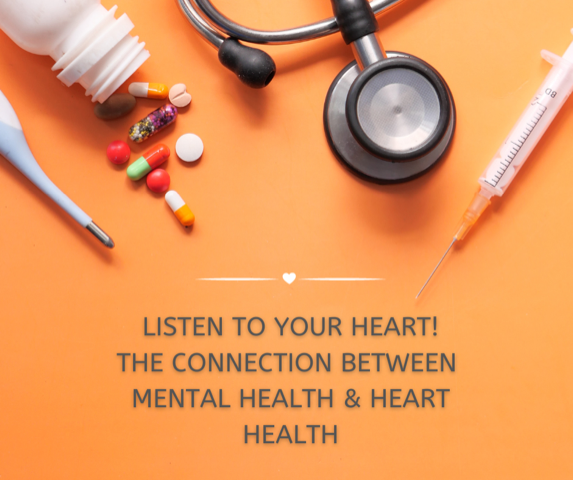Heart Health and Mental Health: A Compelling Connection
According to the American Heart Association, almost half of all U.S. adults have some type of cardiovascular disease1. At the same time, nearly one in five U.S. adults lives with a mental illness, as recent statistics of the National Institute of Mental Health show2. But did you know that heart health and mental health are closely linked?
The connection between heart and psyche has long been neglected in medicine. Main risk factors for heart and circulation were considered to be high blood pressure, high blood sugar and cholesterol levels, predisposition – and, of course, lifestyle. However, a rethinking has been taking place, as various studies pointed out several links between the mental state and heart disease3. Research has even suggested that both may actually cause one another.
Mental illness can be a risk factor for heart disease
It is common sense that mental health is an important part of overall health. Research shows that mental illness can also be a risk factor for developing heart disease4. These effects can arise through biological pathways, and indirectly, through risky health behaviors.
People suffering from depression, anxiety, stress, or PTSD over a long period of time may experience certain physiologic effects on the body, such as increased heart rate and blood pressure, reduced blood flow to the heart, and heightened levels of cortisol. Over time, these physiologic effects can lead to calcium buildup in the arteries, metabolic disease, and finally, heart disease.
Heart disease can cause anxiety or depression
On the other hand, mental health conditions—such as depression, anxiety, and PTSD—can develop after cardiac events. A heart attack, cardiac arrest or heart surgery threatens a person’s very existence. In fact, anxiety and depression are common after experiencing one of those events5.
Cardiac patients who, at the same time, suffer from a mental health disorder may have fewer healthy coping strategies for stressful situations. This can lead to adopting unhealthy behaviors6 such as smoking, an inactive lifestyle, or failure to take prescribed medications. Like a vicious circle, the depression can in turn have a negative effect on the recovery of people with heart disease and increase the risk of further heart problems.
Taking care of your heart and your soul
Against this background, it is not surprising that many people with heart disease need help for their burdened souls. And that heart surgery is more successful when patients receive psychological support in parallel.
There are many ways how you can look after your heart health and mental well-being. Further to adopting a healthy lifestyle, reducing stress and staying connected with other people, it is very important to seek help when struggling to manage your mental health and raise your problems with your doctor. The sooner you seek for help, the better.
*This article is meant for educational and recreational purposes only. The content of this article expresses editorial opinion only, it is not meant to provide medical advice, fact, or to provide medical recommendations on how to treat disease.
References
- https://www.heart.org/en/news/2019/01/31/cardiovascular-diseases-affect-nearly-half-of-american-adults- statistics-show
- https://www.nimh.nih.gov/health/statistics/mental-illness
- https://www.ncbi.nlm.nih.gov/pmc/articles/PMC6016051/
- https://www.cdc.gov/heartdisease/mentalhealth.htm
- https://www.betterhealth.vic.gov.au/health/healthyliving/heart-disease-and-mental-health
- https://www.heart.org/en/healthy-living/healthy-lifestyle/mental-health-and-wellbeing/how-does- depression-affect-the-heart

